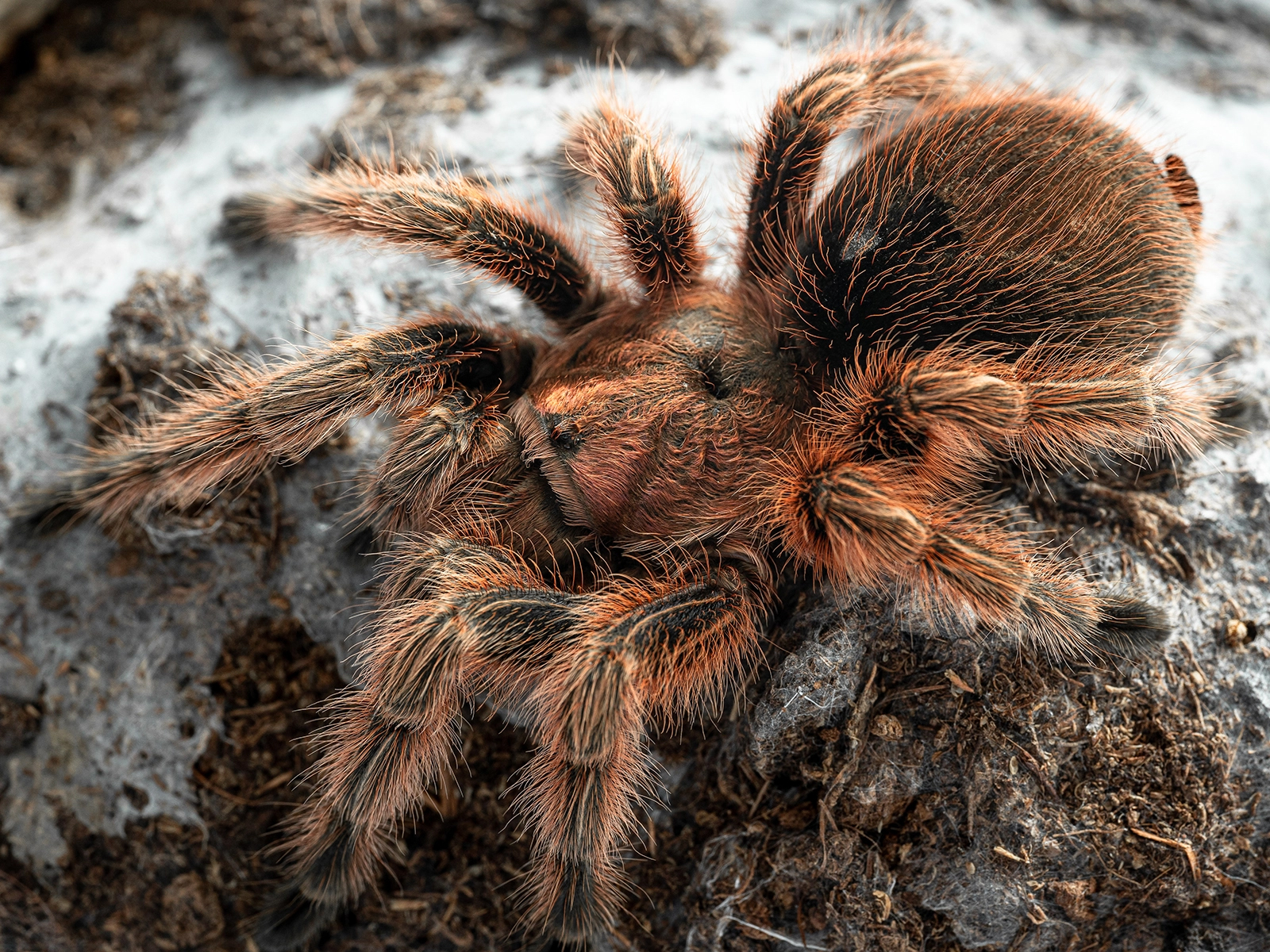Chilean Rose Hair Tarantula
Grammostola rosea
Class
Arachnida
Order
Araneae
Family
Theraphosidae

Arachnida
Araneae
Theraphosidae
Chile, Bolivia, Argentina
Body Length: 1.5 in
Leg Span: Up to 5.75 in
Weight: Varies; females are larger and heavier than males
Dry grassland regions at the end of desert and scrublands
Clutch of 80 - 1000 eggs
Incubation: 6 - 7 weeks
Large insects like beetles, roaches, grasshoppers, and crickets; sometimes other tarantulas, spiders, baby mice, and frogs
Not Listed
Chilean rose hair tarantulas are nocturnal and carnivorous. They have 8 eyes (located on top of their bodies), 2 fangs, and are venomous. Their body exterior is covered with long, bristle-like hairs. Individual hairs may be sensitive to motion, heat, cold, and other environmental triggers.
Their digestive system is designed to deal with liquid food only. Their venom interferes with the prey’s nervous system (neurotoxin) or by breaking down the body’s tissues (cytotoxin).
Although the tarantula does kill its prey with venom, this venom has caused no known fatalities in humans.
There are no major threats to this species, but habitat loss and pet trade are becoming problems. Biggest enemy to the tarantula is the pepsis, a spider-hunting wasp that is smaller than the tarantula, but can paralyze it with just one sting. The tarantula is then fed alive to the wasp’s larvae.